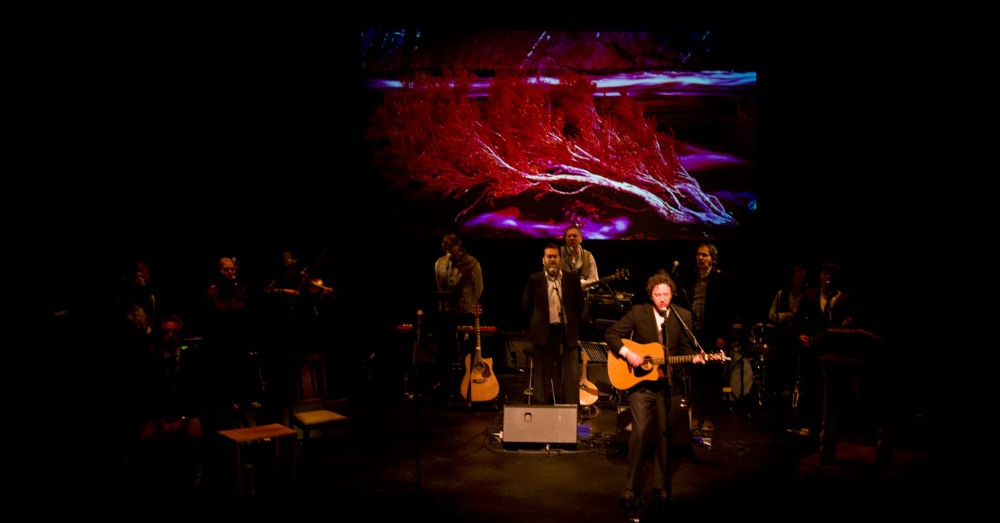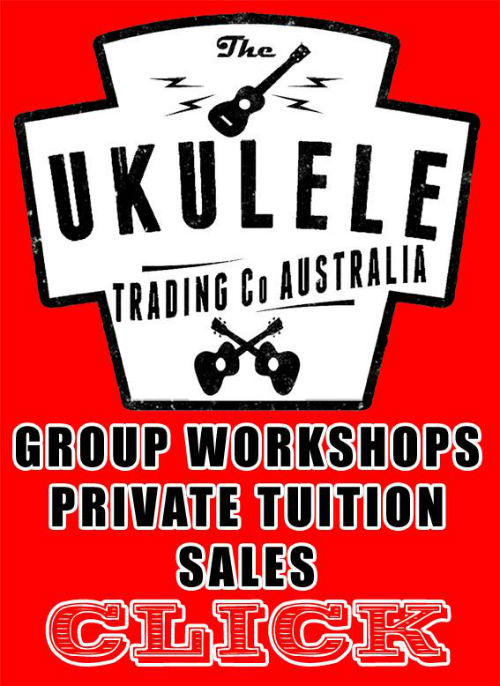by Catherine Blanch.
It’s no secret that Tasmania has a cruel and dark convict history. The stories of people transported from England to Van Diemen’s Land for anything from petty crime to murder, the brutality of imprisonment and the struggles that families faced when migrating to the mainland after being released have all been recorded in the Tasmanian archives and are now being brought to light and to life, thanks to a collaboration of ideas between the Museum of Old and New Art (MONA) for its inaugural DARK MOFO Festival, Mick Thomas (Weddings, Parties, Anything) and brother Steve and a band of well-known Australian performers that you may not otherwise expect to see at the Adelaide Cabaret Festival.
The Clothesline speaks with Mick Thomas, notably impressed by the calibre of the cast and asks if Vandemonian Lags was his idea?
“No… It all came about very organically,” he begins. “It started out as an ancestry website set up by the University of Edinburgh and then shifted to the University of Tasmania. The Uni had the idea of developing the songs to be something less scholarly and more of general human interest. My brother and I started looking at audiovisual material as inspiration to write songs; not necessarily about a particular character but maybe a facet of their life or their family’s lives.
“They the wanted many voices involve; different singers and different styles of stories and people – not just the ‘poor me’ songs. Some could be quite defiant, some downhearted or even something silly and comical. The best way to do that was to get a bunch of people involved, so I started looking through my list of phone numbers for musicians and songwriters that I could think of from around Melbourne who may like to be involved.
“The website already has some overseas artists performing, like Rory McLeod,” Thomas adds. “We played around with his song, got the band to record some repetitive riffs over the top and then sent it to him via email for him to record the words onto it and send it back, along with a lot of other material that we could use.
“When it was first mooted that we could do a play after this, the guys from MONA said to just grab everyone who has been involved in the recordings and just do it. Before we knew it Jeff Lang was rolling up and Tim Rogers, Van Walker, Ben Salter, Darren Hanlon, Liz Stringer, Sal Kimber and a few others soon followed.”
How is the dynamic of having so many lead vocalists, each uniquely different from the other, all in one place?
“There was nothing pretentious that came from the singers. I think everyone was so aware of the idea that no one wanted to be first to be a prat,” he jests, “so, no one was. Besides, it’s usually the lead singers that put in all the work to organise their bands, and so they were all a punctual bunch. We all agreed that if anyone started stuffing up that it could all fall apart very quickly, so everyone has been well behaved and really enjoying working with each other. And where else would you see Tim Rogers working with Jeff Lang, or Sal Kimber working with Darren Hanlon? It’s a big cast but it’s working well.”
As with Katie Noonan’s Love-Song-Circus, where all the songs were based on letters written by female convicts, is Vandemonian Lags is also based on true-life stories and characters.
“There is not a song in this show that doesn’t directly refer to a particular person’s story,” Thomas replies. “They are all transported people whose descendants were lucky enough to make it through to the early 1900s, although not all of the stories are about successes, as some people didn’t fare so well.”
Thomas explains the role of the show’s narrators Brian Nankervis and Tim Rogers.
“At the start of the play, Tim and Brian come out with a book, which is symbolic of the records and archives that exist but have not been looked at or touched for years. Yet within that book are the stories of sixty-four thousand men, women and children that were transported to these shores between the years 1828–1896. To whatever degree, all of those stories are referenced within the songs in the play.
“Tasmania was so ashamed of their cruel history, that some of the pages have literally been torn out of those books,” Thomas reveals, “sometimes by the families, because it was nothing that they were proud of.”
Some of these people were sentenced to five years in jail simply for stealing a loaf of bread to feed their starving families, so these ‘convicts’ weren’t all bad people, were they?
“The thing that we were under instruction from in the beginning is that there were a variety of origins. The fact is, England had to get rid of some people,” he states. “The prisons were full, English society had gone through a massive upheaval with the Industrial Revolution, so some were criminals and others were just families – the wives and children of someone who had offended. There were so many means and ways that people arrived in Tasmania, and a bunch of outcomes that also brought us to the society that we have today.”
Most of the songs for the show were written by Mick Thomas and his brother Steve, with occasional collaboration from the performers, and a couple of members of the film company in Tasmania who had been sifting through the stories. Together they chose the stories, or maybe use a poem that was found; it’s great that, in this day and age, that we can find such great moments from history. We ask what the meaning behind the term Vandemonian Lags is.
“One of the things that we found that could bring these stories into modern times is that these were Australia’s first boat people that were ‘escaping’ Tasmania after their releases, and wanted to just become a part of normal society,” Thomas explains. “Because they were coming en masse, the government actually passed a law to stop them from coming over from Tasmania to Victoria. These people were called the Vandemonian Lags; a lag being someone who is a habitual offender, and Vandemonian being a word play on Van Diemen’s Land – suggesting that these people were demons.
“The fact is, as one historian pointed out, it was history written by the losers because the only people that were known as Tasmanians were the Lags; the ones who became horse thieves and beggars or whatever who were living in the Collingwood and Fitzroy areas of Melbourne. They were the convict stock. But those that successfully moved into society, they disappeared; they changed their names and populated a large part of the rest of the country. The nation needed people and they headed to the goldfields and new townships.”
What is the musical flavour within the show?
“It varies,” he replies. “There’s a fair bit of Celtic-taste, simply by the nature of the stories, and move from European to Rock ‘n’ Roll with a lot of variation in between. It’s not too male-orientated either, with great voices like Liz Stringer, Sal Kimber, Jen Anderson as well as Sally Short who is coming over from the US to perform her parts that she has already recorded for the ancestry website.
“There’s a really great female component which goes between an indignant wife that contested a settlement with husband, a woman who became a prostitute and a whole gamut of things that describe what happened to people when they came ashore. It’s also great to be focussing on something other than those who have died on gallows trees or have been whipped.
“While this show has a real resonance for what happened to the Tasmanian people,” Thomas continues, “it’s about the way that people are in general; it’s not a parochial oddity but is about universal themes and strong people who defied some pretty awful things.”
With images being screened behind you and both Brian and Tim narrating, is this an actual play or musical account?
“There’s no linear narrative, going from one person’s story to another, but there is a sense of it telling a story which has almost progressively become more fantastic,” he suggests. “The stories a heavily factual, and even when others have written songs, that strong sense of fact had to remain in tact. Liz Stringer wrote one song but we had to remove the word Tasmania as it wasn’t called that back then.
“The entire project has been a lot of fun,” Thomas concludes. “While it is, in a way, just a bunch of fragmented histories, they all tell a great story. The performances by Brian and Tim are, to me, mini revelations in themselves; they’re the authority figures that keep the grounding in the songs. Vandemonian Lags is neither scholarly nor academic, but it is a real romp. We’ve performed the show a number of times now and people just cant’ get over how quick the show builds to its point; it’s the performers make it all so much fun.”
Vandemonian Lags performs at Festival Theatre from 7.30pm on Wed Jun 18.
Book at BASS on 131 246 and www.bass.net.au or www.adelaidecabaretfestival.com.au.
Head over to our Competitions Page for your chance to win tickets to see Vandemonian Lags




